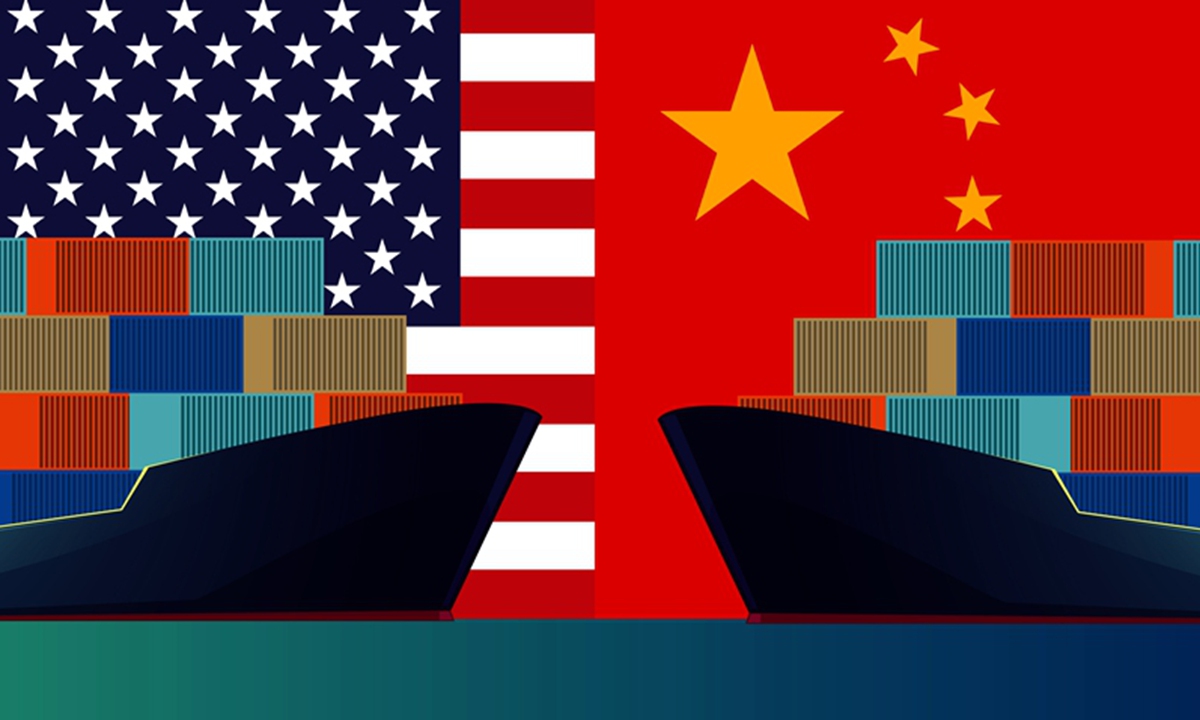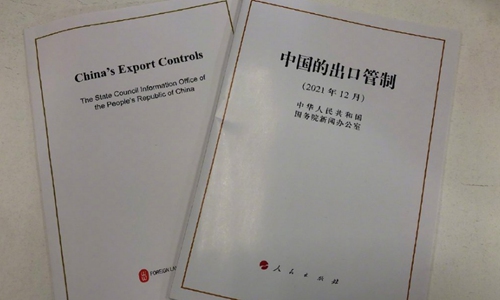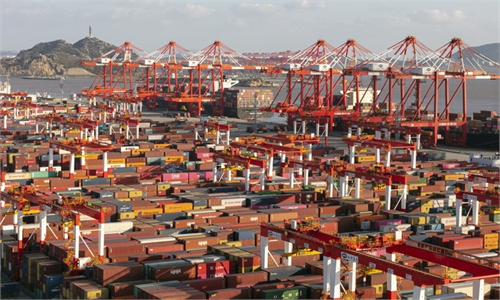Fair, reasonable and non-discriminatory export control is an important guarantee for globalization

Photo:Global Times
China's State Council Information Office on Wednesday issued the country's first ever white paper on export controls, proposing that international export control should be developed in a fair, reasonable and non-discriminatory direction. This is the right approach that China championed in response to the chaotic situation in the international governance of export control and anti-globalization sentiment, aiming to let the torch of multilateralism illuminate the road ahead for mankind. As export control systems and mechanisms are established and improved in more and more countries, they are expected to promote and guarantee in-depth development of globalization, rather than block that trend.
Export control aims to regulate and promote trade rather than restrict trade.
Export control will reduce security risks and is conducive to shaping a peaceful and sustainable international trading environment. The focus of export control is to safeguard national security and interests, and prevent the proliferation of nuclear, biological, chemical and other weapons of mass destruction and their means of delivery. Effective export control can reduce security threats, prevent the risk of conflicts, ease tensions and create a stable and predictable international trade environment.
Export control will help maintain and enhance the reputation of enterprises and reduce barriers to foreign trade. For companies, improving export control construction will add to internal procedures and costs, but these little burdens will be compensated with more convenience in trade and more positive international reputations. It secures long-term development, and brings a large return with only a small investment.
Export control should enhance international trust and improve the efficiency of international trade circulation. Countries follow international practices, implement effective export control measures, and strengthen coordination and cooperation, which in turn increases mutual trust in security, stabilizes mutual expectations in policy, improves commodity circulation efficiency and achieves common prosperity and development goals.
Discriminatory practices will have negative implications upon international export control cooperation.
In recent years, the US has led a reversing trend in the field of international export control. Instead of promoting economic and trade development, it promotes decoupling. Instead of boosting economic globalization, it enhances anti-globalization. Instead of promoting a shared future for mankind, it engages in small circles of technological blockades.
Such a reversing trend emphasizes competition among major powers in a biased way, generalizes the concept of national security and disrupts the global supply chain. In the era of globalization, relationship between major powers tend to be very complicated, with disputes and interdependence occurring simultaneously. Focusing on competition and struggle with a narrow mind, fabricating all kinds of excuses, and regarding export control as a policy tool to suppress other countries' development seriously hinders international export control cooperation. Under the colored glasses of full-scale competition, the scope of export control keeps expanding and control measures become more and more complicated. However, the trend has ignored the fact that economic security brought by trade development is the important basis of international common security. It has also ignored that regulating and promoting trade in controlled items that is consistent with compliance requirements, was the original intention of export control, and that non-proliferation is the common security interest of international export control.

Photo: Xinhua
The reversing trend alienates major trading countries and is keen to create technological barriers. Export control is an important area of international security cooperation. UN Security Council Resolution 1540 requires member states to strengthen the establishment of mechanisms for the proliferation of weapons of mass destruction and implement appropriate and effective export controls. Based on this, the international community has strengthened cooperation in export control and achieved considerable results. However, driven by the US, more and more minilateral mechanisms have emerged. These are, in fact, examples of pseudo-multilateralism and are only exclusive small cliques which might become tools of another round of economic cold war.
This reversing trend arbitrarily expands the scope of control and affects normal scientific and technological exchanges. Export control needs to be continuously updated with technological progress, but it should never be used as an excuse to block international scientific and technological exchanges. In recent years, the US and some other countries have shifted the focus of export control from weapons of mass destruction and their means of delivery to emerging and fundamental technologies. These countries have also combined export control with policy tools such as student visas, scientific and technological exchanges and foreign investment screening, setting up a complicated network of technological blockades. This has jeopardized the security and stability of the global industrial and supply chains, prevented developing countries from sharing the achievements of scientific and technological progress, and undermined developing countries' legitimate right to sustainable development. This will not help build a future of shared security and prosperity for mankind.
Fairness, reasonableness and non-discrimination are the right approach of developing international export control.
Adherence to the principle of fairness means that export control should comply with the basic principles of international law. Countries should earnestly fulfill their corresponding international obligations, not arbitrarily impose sanctions on other countries' entities on the basis of their own domestic law, interfering with legitimate trade exchanges. They should not promote double standards on non-proliferation, or misuse export control as a weapon to suppress other countries' normal development.
Adherence to the principle of reasonableness means that export control should fully protect the legitimate development rights of developing countries. Various international treaties restricting the development of weapons of mass destruction all stipulate countries' rights to peacefully use related items and technologies without discrimination. In December, the 76th Session of the UN General Assembly emphasized all member states' inalienable right to international cooperation in materials, equipment and technology and technological exchanges for peaceful purposes. The development and improvement of export control should not harm these legitimate rights of developing countries, but should promote international scientific and technological cooperation for peaceful purposes.
Adherence to the principle of non-discrimination means multilateral mechanisms related to export control should be more representative and open. In the international governance of export control, developing countries should have equal opportunities and the right to voice their opinions. Some multilateral mechanisms should open the door for dialogue, exchange and cooperation for all countries that strictly perform non-proliferation and meet other international obligations, and continuously enhance the universality and effectiveness of international export control cooperation.
The author is director of Arms Control Studies Center, China Institutes of Contemporary International Relations. opinion@globaltimes.com.cn

